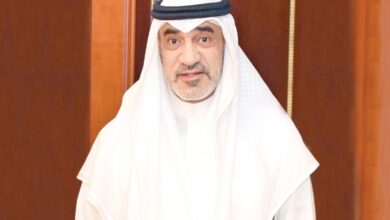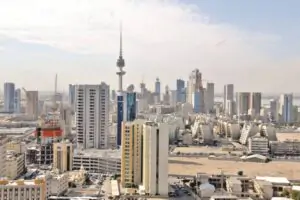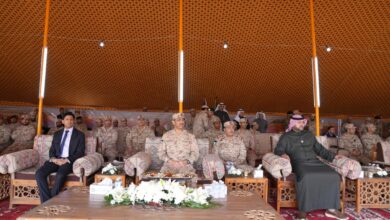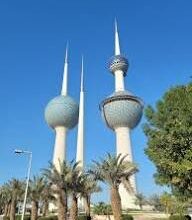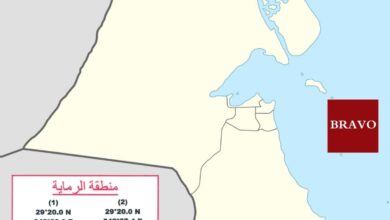Lithuania, Kuwait ties embody a multifaceted relation
Elaborating on diplomatic relations between the two friendly states, Ambassador of Lithuania H.E. Ramnas Davidonis pointed out, “Lithuania and Kuwait established diplomatic relations in April 1994, and since then the relationship has grown in strength in various sectors, paving the way for continued cooperation, trade, and cultural exchange.

By Reaven D’Souza
Executive Managing Editor
In a recent exclusive interview with The Times Kuwait, Ambassador of Lithuania H.E. Ramnas Davidonis expounded on his country’s growing relations with Kuwait and the potential for further enhancing ties in various domains. The ambassador also emphasized that Lithuania’s reentry on the global stage in 1990 marked a significant geopolitical shift, underscored the nation’s sovereignty, and provided an unique opportunity for the country to build diplomatic, developmental, and cultural relations with the global community, in particular with the Arab world.
Ambassador Davidonis began by highlighting the role of diplomacy in amplifying Lithuania’s voice on the international stage. “Lithuania’s journey back onto the global arena, following its return to international maps on dissolution of the former Soviet Union in 1990, offered the chance to build fresh bilateral agendas from the ground up. The ability to define relationships with other countries is a rare and exciting privilege. Diplomacy offers the opportunity to shape policies, foster trade, and create impactful recommendations that can guide international interactions.
“Being part of such efforts since the early 1990s has meant that I had the opportunity to witness the evolution of Lithuania’s foreign relations firsthand. In many ways, crafting bilateral agreements is akin to opening a blank page and writing a new chapter in history. Every decision, every negotiation, is a step toward defining Lithuania’s future on the world stage. The coming years will be crucial in strengthening Lithuania’s presence and influence, ensuring its position is well-rooted in diplomatic and economic progress.”
He added, “Diplomacy is more than negotiations and agreements—it is the art of shaping international relationships, fostering cooperation, and navigating the ever-changing geopolitical landscape. For those of us who have dedicated our lives to this field, the experience is nothing short of extraordinary. The journey of diplomacy is never static—it evolves, strengthens, and adapts to new challenges and opportunities.”
Elaborating on diplomatic relations between the two friendly states, Ambassador Davidonis pointed out, “Lithuania and Kuwait established diplomatic relations in April 1994, and since then the relationship has grown in strength in various sectors, paving the way for continued cooperation, trade, and cultural exchange.

“Thirty years of diplomatic relations between Lithuania and Kuwait present a valuable opportunity to assess the progress made and explore new avenues for cooperation. Despite differences in geography and history, the two nations share remarkable similarities in their geopolitical experiences—both having endured occupation and worked tirelessly to build their countries into strong, independent entities.
“Kuwait’s open and welcoming society is a defining characteristic of its diplomatic identity. Having had the opportunity to engage with Kuwait’s leadership and citizens, it is clear that the country fosters an atmosphere of warmth and collaboration, making diplomatic engagement a rewarding experience.
“Recent discussions with Kuwait’s Assistant Minister for European Affairs reflect the momentum in diplomatic exchanges. It signals a willingness to deepen engagement and expand opportunities for mutual cooperation, strengthened partnerships, and new prospects for cultural and economic collaboration.
“Diplomatic visits are an essential tool in fostering deeper understanding between countries. Both nations now have the freedom to define their own direction in foreign relations. The future of Kuwait-Lithuania ties should be built on understanding, collaboration, and shared interests. With more visits and deeper exchanges, the connection between these two nations can flourish, creating lasting bonds for generations to come.”
Turning to economic relations and investment opportunities in Lithuania, Ambassador Davidonis stated:: “Lithuania and Kuwait have the potential to grow significantly through economic cooperation and strategic investment. Today, Lithuania has the largest economy among the Baltic states, with a track record of innovation, particularly in fields like scientific lasers and nanosatellites.
“Lithuania is now actively diversifying its trade portfolio and investing in renewable energy sources. We are also aiming to become a hub for high-value, knowledge-based jobs, focusing on research, innovation, and technology-driven industries. However, trade volume with Kuwait does not reflect Lithuania’s full potential.
“In 2023, Lithuania exported $12.7 million worth of goods to Kuwait, with furniture being the top product, accounting for $5.92 million. Other notable exports included plastic products and seeds. On the other hand, Kuwait’s exports to Lithuania have been relatively smaller,with plastics and vehicles among the primary goods traded. The current economic relationship presents opportunities for expansion, especially in investments in agriculture, high technologies, life sciences, and real estate sector.
“In particular, Lithuania has established itself as a leader in life sciences. With advancements in biotechnology, pharmaceuticals, and medical research, Kuwaiti investment could contribute to collaborative efforts in healthcare innovation and medical infrastructure development. Strengthening ties in this sector would not only bring economic benefits but also foster knowledge sharing between medical professionals from both countries.
“Foreign investors, including Kuwaitis, can freely buy, sell, and rent out real estate in Lithuania. The market has shown steady growth, with residential property prices increasing by an average of 2.5 percent annually. Investors can purchase apartments, commercial properties, and luxury residences. As economic and investment opportunities widen, Kuwait investors could also find investment opportunities in seaport infrastructure, green energy, and technology startups.”
Explaining about his country’s immense tourism potential, Ambassador Davidonis stated: “Lithuania’s reputation as a safe and welcoming destination makes it an attractive place for Kuwaiti travelers seeking a new yet familiar experience. Safety is a crucial factor when choosing a destination, and Lithuania stands out as one of the most secure countries in Europe.
“Visitors also find English widely spoken, making interactions easy and enjoyable. Summer is the best time to visit, with lush green landscapes, seaside resorts, and comfortable weather creating an ideal getaway that offers the full experience of Lithuania’s natural beauty and vibrant cultural scene.. While winter presents a different kind of magic, with stunning Christmas lights and festive atmospheres.
“However, currently, there are no direct flights between Kuwait and Lithuania, but travelers can find connecting flights through major airlines and internaitonal hubs. Given Kuwait’s reputation for luxury travel and Lithuania’s growing importance in diplomatic and business circles, a direct flight could be a strategic move in the future. The joy and optimism of the country contribute to its appeal, making it an excellent place for deeper cultural exchanges with Kuwait and the wider Arab world.
Ambassador Davidonis concluded by stating: “For decades, history and geographical distances shaped relations between Kuwait and Lithuania, limiting interactions and cultural exchange. However, as two independent nations today, the opportunity to build bridges and embrace the beauty of Arab civilization is fully within reach.
‘Looking ahead, Kuwait and Lithuania stand poised to build on their shared experiences, fostering a dynamic diplomatic relationship that reflects the progress of the past three decades while paving the way for future successes. The foundation for stronger bilateral relations is set, and with continued engagement, the partnership will only grow.







